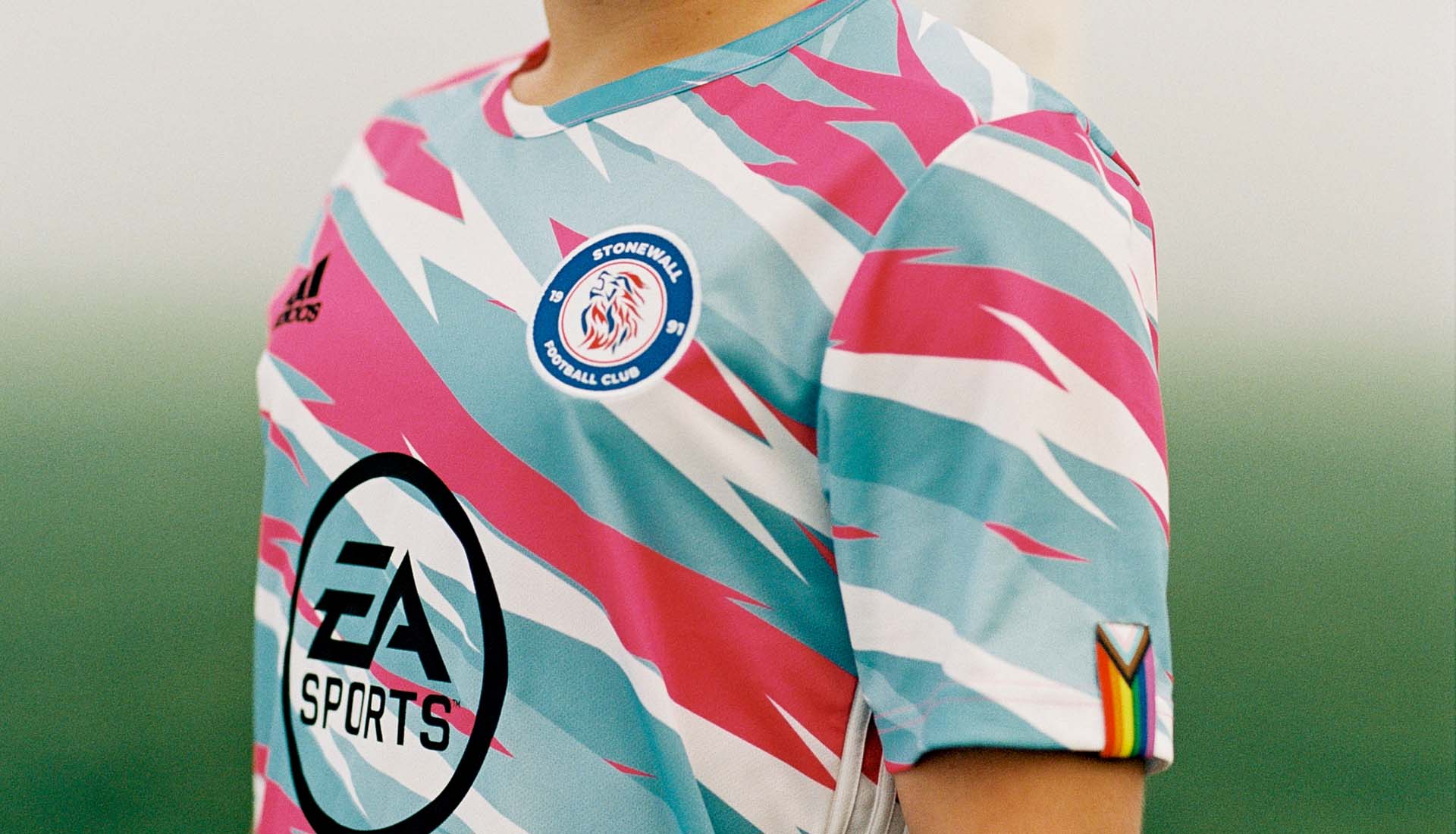Stonewall FC are Britain’s first-ever LGBTQ+ football team.
Formed in 1991, the club originated as a group of gay men who wished to play football in a safe environment, away from the homophobia and bigotry which permeated British sport. They began as a Sunday League team, yet today, thirty years on from their inconspicuous creation, the ‘Stones’ are trailblazers in the quest for equality in football.
The club’s playing staff comprises solely members of the LGBTQ+ community. Their intention is clear: to provide inclusivity and opportunity for all who wish to play football, regardless of race, sexuality or gender. In this quest, they have helped champion the now widely recognised Rainbow Laces Campaign, which kicked off in 2013 and has since made a real difference in positively shaping attitudes towards the LGBTQ+ community in football.
Stonewall FC’s presence in the football pyramid goes beyond tokenism. The club currently plays in the Middlesex County League and has to date won the European Gay Championships nine times, as well as seven winners medals in the IGLFA World Championships and four gold medals at the Gay Games. This success has propelled them to impressive commercial heights, as their kit for the 2020/21 season has been produced by Adidas and is sponsored by EA Sports.

Such achievements have pushed the club’s message of inclusivity onto a global audience. In December 2020, Stonewall collaborated with Adidas to produce a third-team kit that proudly displayed the colours of the trans flag in an eye-catching camo style. Both the style and message of this kit have proved popular with fans around the world, leading to record shirt sale numbers for a non-league club. These are remarkable strides for a lowly non-league outfit from Barnes. Yet, away from media hype and campaign rhetoric, the football community must endeavour to truly contemplate the reason for Stonewall’s formation in the first place. After all, this is an organisation that would not exist had gay men in 1991 been able to play football without receiving a torrent of homophobic abuse.
Football fans today may often be content to sit back and forget this fact, proclaiming that the struggle of Stonewall’s founders existed in a Britain of yesteryear. This was a socially nervous Britain – a Britain in which gay marriage had not yet been legalised, transgender people could not legally change their name and members of the LGBTQ+ community could not join the armed forces. Surely, then, the Britain of today fosters a football pyramid which is far more inclusive than that of the late 20th century…?
Not entirely. Research by the Kick It Out campaign has shown that modern-day football still has a long way to go in reaching its optimum goal. Kick It Out received 117 reports of abuse based on sexual orientation in the 2019/20 season: 95% more reported incidents than in the previous football calendar. Fans themselves appear to have identified a similar trend, as 32% of fans in a recent YouGov poll said that they had witnessed homophobic comments at a football match over the course of 2019/20, 41% of which could recall reading homophobic abuse towards footballers on social media.
These statistics do not point to unwavering progress. Undoubtedly, we live in a society that is more accepting of different ethnicities and sexualities than it was thirty years ago. Yet, figures such as this highlight that football is still far from where it needs to be.
Fantastic progress from Stonewall FC must be commended, of course, just as campaigns such as Kick It Out and Rainbow Laces deserve funding and support. However, fans and players alike must now follow the path trodden by those at Stonewall and take a stronger stance in opening the game up to the LGBTQ+ community. They must also display greater commitment to calling out perpetrators of homophobia and discrimination.
The sooner football, and sport in general, acts to engrain these attitudes into their social fabric, the sooner society can become more inclusive for all.
Featured images via Soccer Bible.

